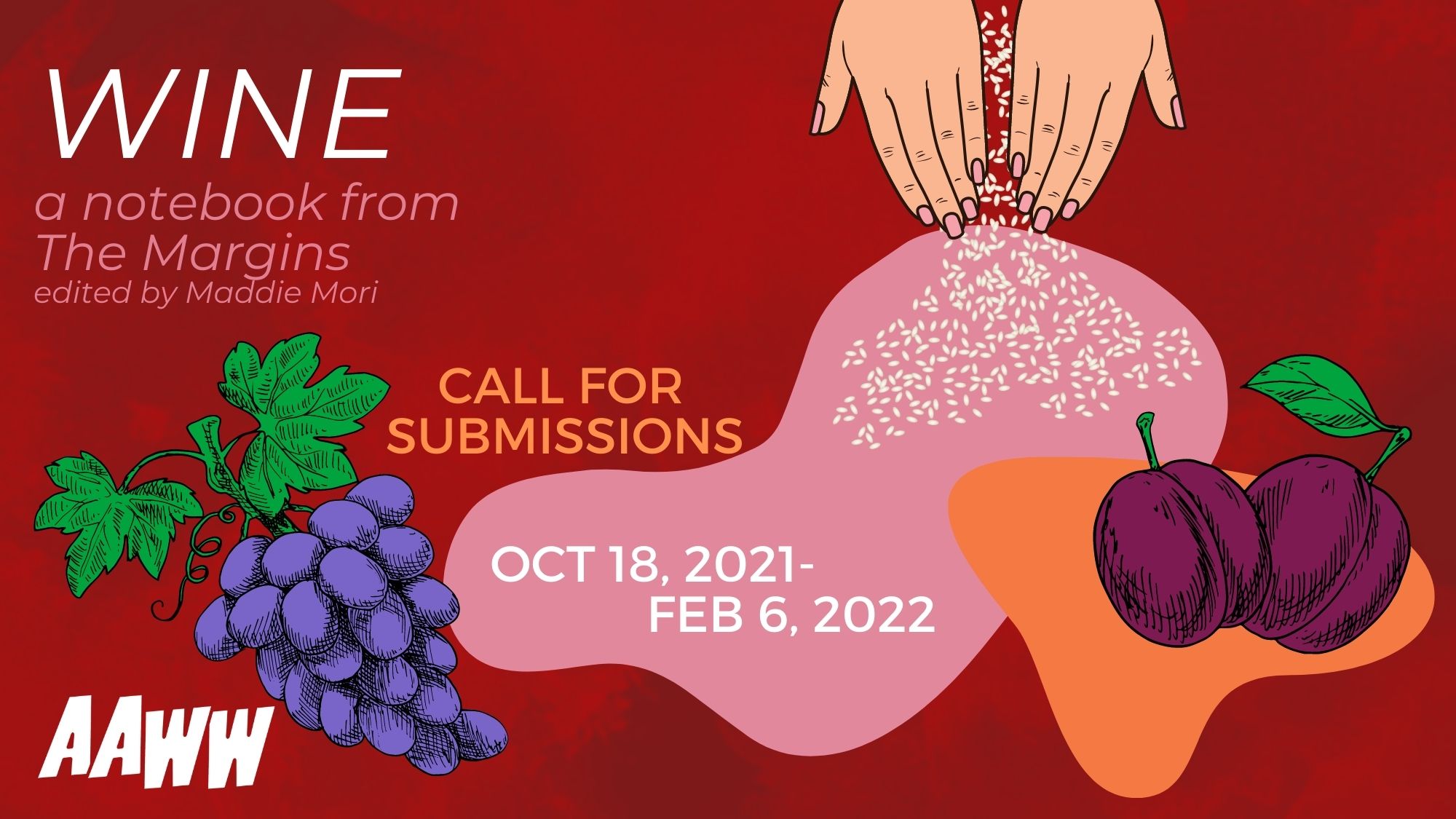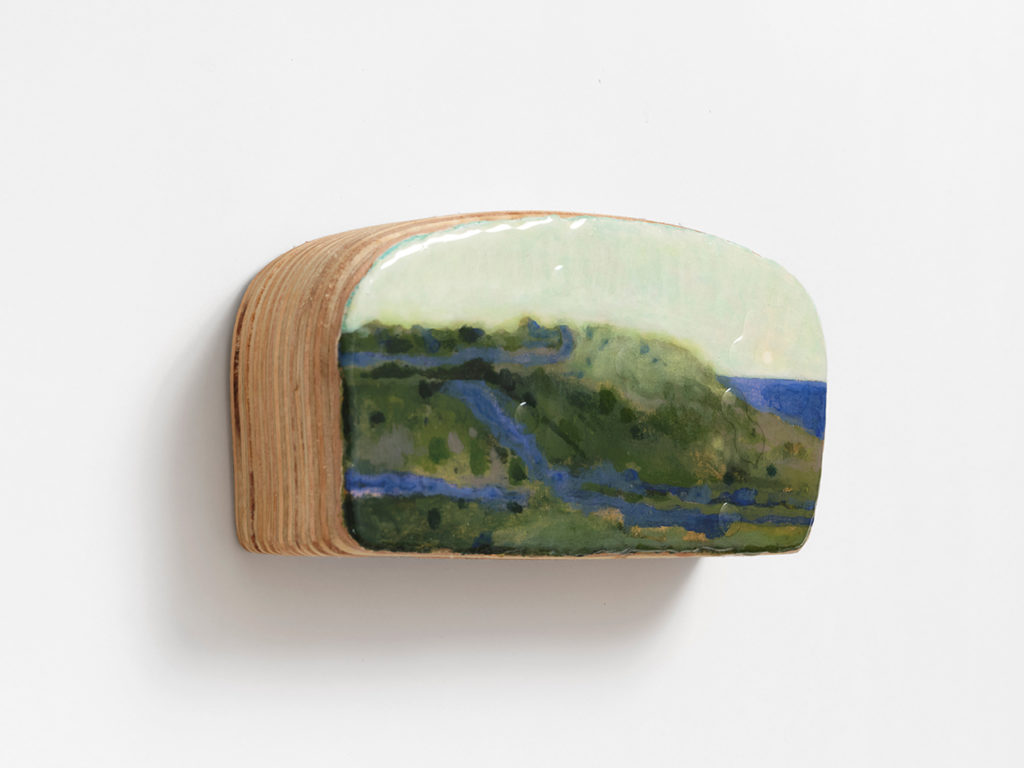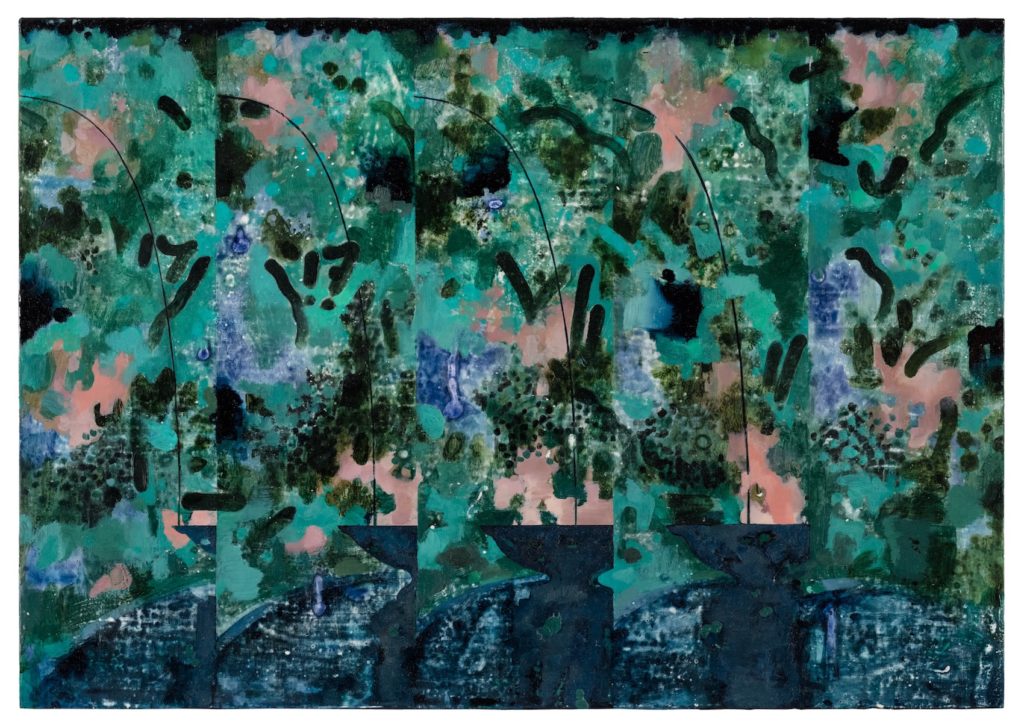A special folio on alchemy, memory, and sensation

October 16, 2021
The following call for submissions has been curated by 2021 Margins Fellow Madeleine Mori. Submissions are open until February 6, 2022.
Before pursuing a life of poetry in New York City, I worked for years as an assistant and harvest intern to several wineries in my native California, after graduating with a degree in enology, the science behind winemaking. Each time I open a bottle of wine from the harvests I have worked, its sensorial resonances (aroma, taste, tannin, etc.) feel a little different due to its maturation, and yet I can still sense some of the winemaker’s choices before the wine went into bottle. I can detect, for instance, choices toward its acid content, or if there might be a spicy woodiness from the inclusion of grape stems in the fermentation process. I similarly love when I can sense the associative traces left in a piece of lyrical writing by its maker.
Lyrical writing provides a kind of alchemical prolonging of life to its subject, as wine provides to fruit—both acting as living vessels of the history, memory, and care that their makers put in, and that we, as readers and drinkers, also simultaneously filter through our own personal histories and sense memories. Perhaps it is this slippery, intimate magic that makes lyrical writing and wine seem so difficult to approach, and their industry secrets so closely guarded by the established critics. What assumptions get made by those critics about the “typical” reader or consumer’s taste, identity, education, etc.? And how do those assumptions shape both what writing and wine gets funded, made, and shared widely, and how readers and drinkers perceive their right to their own sensorial truths, languages, and pleasures?
In my undergraduate wine studies as well as in much of my experience working in wineries, I was often one of the only women of color present. Of the few creative works written about wine that I’ve encountered, almost all were written by cis, straight men accepted by the traditional literary canon (Charles Baudelaire’s “The Soul of Wine” W. B. Yeats’s “A Drinking Song,” and Pablo Neruda’s “Ode to Wine” to name a few). With this call for submissions, I seek to take the bit of access I’ve been granted, and build a ladder for new voices and perspectives working at my same intersections of wine and lyrical writing.
For a new notebook on The Margins, we’re looking for original and translated poetry and short prose works by Asian and Asian diasporic writers that center stories, images, and sensations related to the transformative influence of wine. We’re especially interested in writing that experiments and plays with form, including graphic texts, short lyric memoir, and essays. Your submissions might be inspired by the molecular interactions between grape juice, cork, and barrels in the process of winemaking, or center wines like plum, dandelion, or rice wine. You might choose to engage with the adverse contributions of certain viticultural practices and water use to climate change, or acknowledge the colonial or religious imperialist histories of traditional wine regions, as with the spread of Spanish Catholic missionaries throughout what is now the U.S. state of California. Whether your approach is of an educator, maker, seller, enthusiast, and/or as someone with a complicated relationship to alcohol, we are looking for creative writing about wine from a variety of diverse perspectives.
We are not looking for straightforward wine reviews, scientific papers, or broad overviews of the history of winemaking. We’re looking for writing that pushes against the easy evocative gaze of wine as “muse,” wine as “voluptuous” or “seductive,” and especially wine as seen in relation to some concept of an ideal human “body” (i.e. the word “flabby” sometimes used to describe wines lacking in acid, or the “long legs” of alcohol on the inside of a wine glass). We’re looking for writing that also pushes its language beyond gender binaries of “masculine” and “feminine” styles of wine.
Format the title of your submission as follows: “LAST NAME – WINE – TITLE OF PIECE.” Include a short biography of up to 60 words and share why you chose your particular engagement with wine in your cover letter.
Double-space all prose submissions and limit them to approximately 2,000 words (though you may write as short as you like). You may send us up to three poems per submission. We accept Rich Text Format, MS Word, or PDF formats. For graphic work, please submit with enough detail that we can read the text in JPG, GIF, PNG, or PDF format. Do not include your name on the attachments of your submissions.
We accept simultaneous submissions, but please let us know if your work has been accepted elsewhere. Writers whose pieces are accepted will receive compensation.
The following pieces offer some models for ways to engage with the types of perspectives sought by this call:
“It’s Time To Decolonize Wine” by Miguel de Leon
“Stag’s Leap” by Sharon Olds
“Red Rice Wine: Chinatown’s Artisanal Homebrew” by Anelise Chen“
Fish Paste” by Nay Saysourinho
“Trust Me” by Yuxi Lin
AAWW is an organization that believes in the power of art to advocate for and center the voices and ideas on the margins. Our award-winning digital magazine, The Margins, publishes work by Asian, Asian American, and Asian diasporic writers (including but not limited to East Asian, Southeast Asian, South Asian, MENA [Middle Eastern and North African], Indo-Caribbean, Central Asian, Arab, and Arabophone, Pacific Islander, and Iranian writers) as well as multiracial writers. The Margins publishes Black, Latinx, and Indigenous writers. We welcome work from LGBTQIA, nonbinary, and gender nonconforming writers. Our work exists within the intersections of these identities and offers a new countercultural space in which to imagine a more just future.



